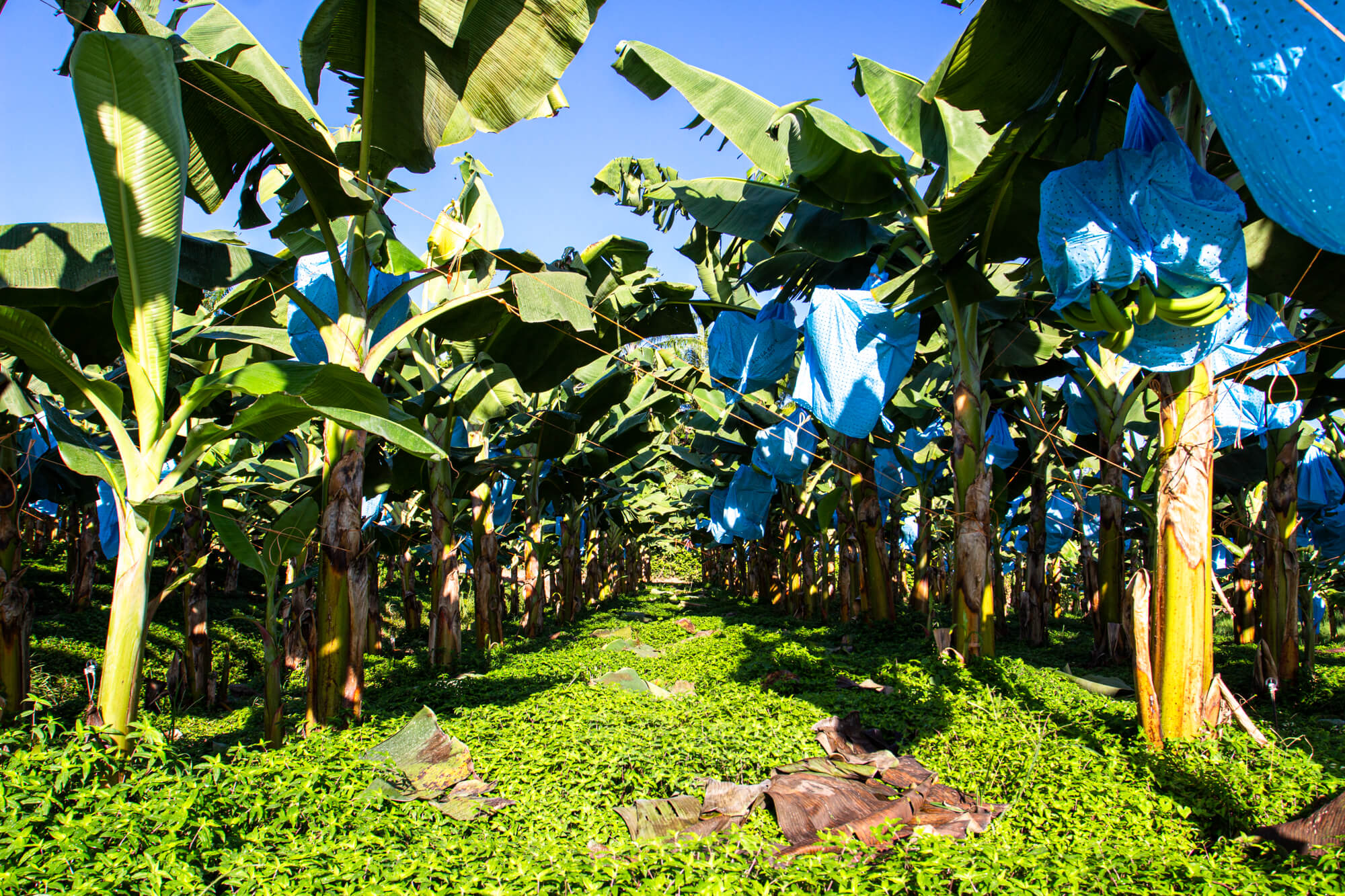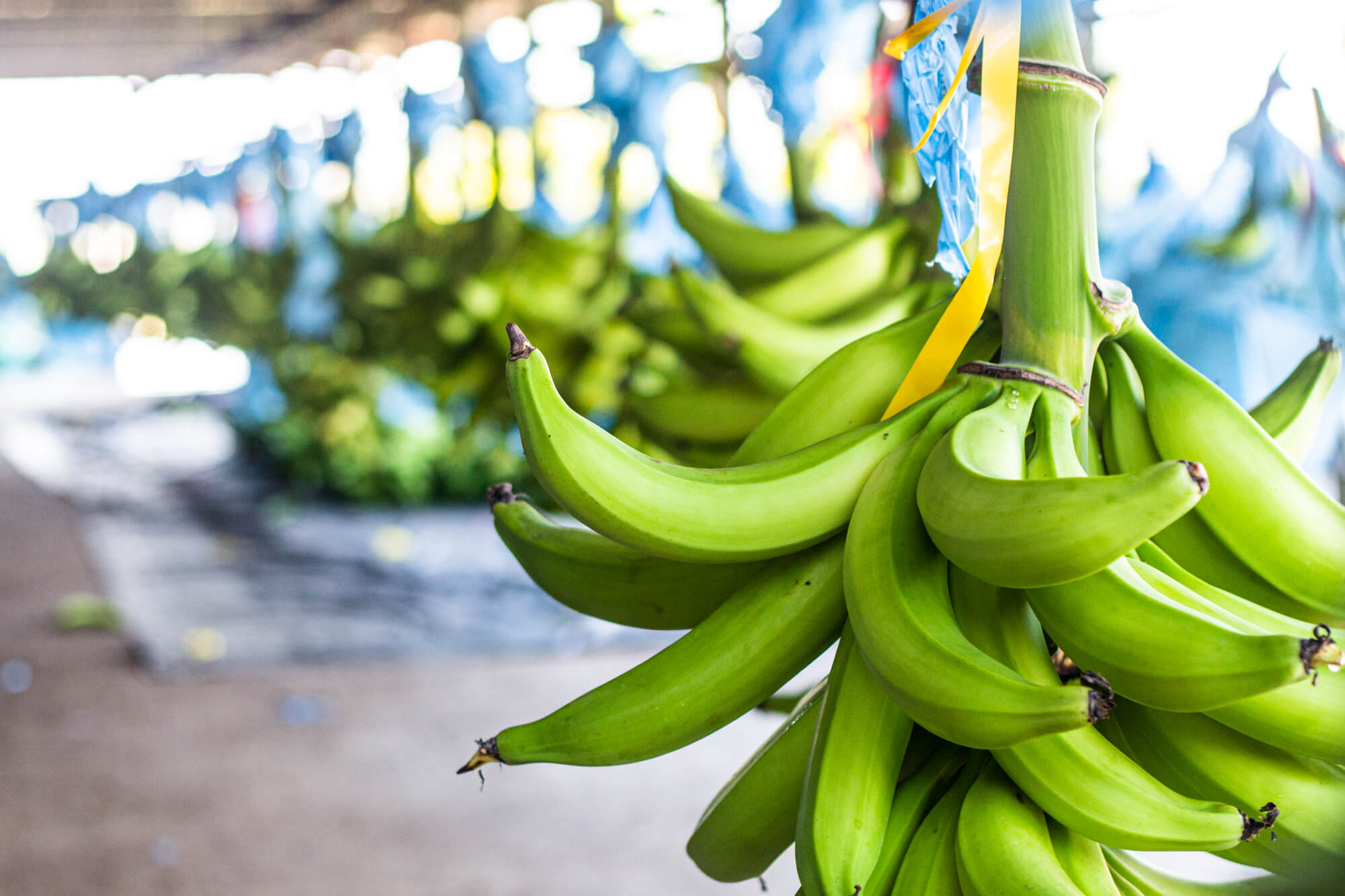Sustainability
Nourishing Without Harming
Sustainable agriculture is an agricultural production system that seeks to meet the food needs of the current and future population without compromising natural resources and the environment. The principles of sustainability in agriculture have numerous benefits, including:

Environmental Protection: Sustainable agriculture helps conserve natural resources such as soil, water, and biodiversity. For example, the use of practices like crop rotation and vegetation cover helps reduce soil erosion, while the use of organic fertilizers helps improve water quality.

Improved Productivity: Sustainable agriculture can help increase crop productivity by reducing dependence on chemical inputs and other non-renewable resources. For example, the use of Callisia sp. in banana plantations and KudzuPueraria phaseoloidesin palm plantations as soil coverings improves fertility, reduces erosion, fixes nitrogen from the air, controls weeds, and enhances soil health.

Improvement in Food Quality: Food produced with sustainable practices is often more nutritious and healthier than those produced using conventional methods. This is because crops grown with sustainable practices have higher nutrient content, including vitamins, minerals, and antioxidants.

Economic Improvement: Sustainable agriculture can help boost the economy of rural communities by creating jobs and increasing farmers' incomes. For example, the use of reusable materials that are later recycled reduces environmental impact and production costs
Our Certifications



